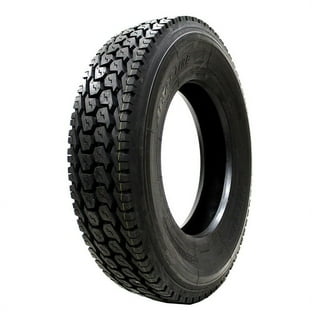Tire Solution: Recognizing Tire Pressure Monitoring Systems
Comprehending Tire Stress Surveillance Equipments (TPMS) is a vital aspect of keeping optimum car efficiency and safety and security when driving. With improvements in auto innovation, TPMS has actually become a basic attribute in modern-day automobiles, offering real-time info on tire stress levels. Digging much deeper right into the ins and outs of TPMS, one can reveal the numerous elements that compose this system and the importance of each in making certain exact tracking. From direct to indirect TPMS systems, the landscape of tire stress tracking is varied, each with its unique set of advantages and factors to consider. Keep tuned to untangle the complexities of TPMS, from maintenance tips to the obvious advantages of maintaining your tires correctly blew up. tires morris il.

Relevance of TPMS
The value of Tire Pressure Monitoring Solutions (TPMS) depends on their capacity to improve vehicle safety and efficiency with real-time surveillance of tire stress degrees. Maintaining the proper tire stress is vital for making sure optimum handling, braking, and overall security of a lorry. TPMS offers drivers with immediate feedback on any underinflated or overinflated tires, permitting timely changes to be made.
Elements of TPMS
Comprising different vital components, a Tire Stress Tracking System (TPMS) functions as an innovative safety and security attribute in modern-day vehicles. The main parts of a TPMS consist of sensing units, a control module, and a caution indication. Sensing units are usually located in the tire valve stem or affixed to the wheel setting up, where they determine tire stress and transmit information to the control module. The control module processes this info and causes a warning if it finds dramatically reduced pressure in any one of the tires. The caution indication, typically a sign on the dashboard, notifies the chauffeur to check the damaged tire or tires. Some progressed TPMS versions also present the actual tire stress readings for each tire, offering drivers with real-time info to make sure optimum tire efficiency and security. By keeping an eye on tire stress constantly, TPMS assists prevent accidents, reduces tire wear, and enhances gas performance, making it an essential component for automobile safety and performance.
Types of TPMS

On the other hand, indirect TPMS counts on the car's wheel speed sensing units to monitor tire pressure. This system spots underinflation by contrasting the rotational rates of the wheels. Indirect TPMS is less expensive than straight TPMS, as it uses existing sensors within the car.
While straight TPMS offers a lot more exact readings, indirect TPMS is easier in design and typically requires less maintenance. Both systems have their advantages and limitations, and the choice between them often depends on factors such as cost, vehicle make, and individual choice. Recognizing the distinctions between these two types of TPMS can aid lorry proprietors make notified decisions concerning tire maintenance and safety.
TPMS Maintenance Tips
Effective upkeep of TPMS is crucial for making certain ideal efficiency and security of your automobile. Regularly evaluating the TPMS sensing units for any kind of damages or deterioration is crucial. Ensure that the sensors are complimentary and tidy from particles that could conflict with their functioning. Additionally, it is suggested to inspect the sensing unit batteries regularly and change them as needed to assure precise analyses. Conduct routine checks on the tire stress levels and compare them with the TPMS readings to guarantee they correspond. Alter the system following the maker's guidelines if there are any type of discrepancies. Throughout tire rotation or substitute, make sure that the TPMS components are handled meticulously to stop any possible damages. If the TPMS cautioning light brightens on the control panel, address the concern without delay by inspecting the tire pressures and the general system for any kind of mistakes. By sticking to these upkeep tips, you can extend the life expectancy of your TPMS and boost the safety and security of your driving experience.
Benefits of Proper Tire Stress
Keeping read the full info here correct tire stress, as highlighted in TPMS Maintenance Tips, is important for enjoying the various benefits associated with optimal tire stress degrees. One of the primary advantages of keeping the right tire stress is enhanced fuel effectiveness. When tires are appropriately blown up, there is much less moving resistance, bring about far better fuel economic climate. Furthermore, appropriate tire pressure guarantees also tire wear, extending the life expectancy of the tires and promoting safer additional hints driving conditions. With the best tire pressure, automobiles additionally have far better handling and grip, specifically in unfavorable climate condition. This can boost general driving performance and safety for the chauffeur and travelers. Maintaining optimum tire pressure can add to a smoother and a lot more comfortable experience by reducing resonances and sound triggered by underinflated tires. In verdict, the benefits of correct tire pressure exceed just tire durability; they encompass enhanced gas effectiveness, enhanced security, far better car efficiency, and overall driving convenience.
Verdict
In conclusion, comprehending tire stress monitoring systems (TPMS) is important for preserving ideal tire stress and guaranteeing automobile safety and security. By identifying the significance of TPMS, being acquainted with its components, understanding the various kinds readily available, sticking to proper maintenance suggestions, and recognizing the benefits of keeping appropriate tire stress, vehicle drivers can enhance their driving experience and prolong the life-span of their tires. Proper tire stress is key to risk-free and effective car procedure.
